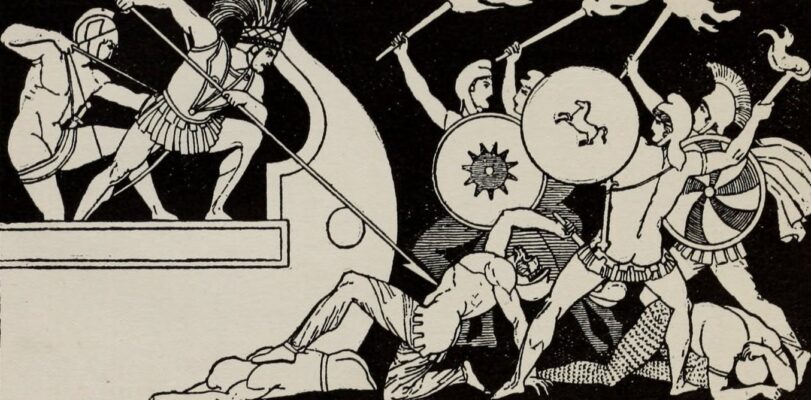The Homeric Question
Ancient history is a fascinating topic. Partly because, the further back we go in history the fewer written records, and the less evidence there is. When it comes to events that occurred BCE — before the common era — a lot of heavily debated questions remain. One such question is the so-called Homeric question: the debate over the identity of Homer and the authorship of the two epic poems: the Iliad and the Odyssey.
In this article, we will discuss Homer’s identity, why the Iliad and the Odyssey are significant, and why this debate is still going on.
Who was Homer?
Homer was the most important and earliest of the Greek and Roman writers. He composed two epic poems, the Iliad and the Odyssey, that have had a tremendous influence on world literature. This is what many people commonly believe. However, this is not a proven fact.
Although the Iliad and the Odyssey have always been attributed to someone called ‘Homer’, little else is known about this mysterious figure. The word ‘homerus’ could mean ‘hostage’ or ‘blind’ in ancient Greek. Meaning that Homer could have been a captive, or a blind bard. These are, however, just speculations. There is no proof of one or the other, and there is even no proof whether Homer was male or female.
Multiple ancient accounts of Homer’s life exist, but no documentary record. All the accounts and biographies are based on tradition and have no value as historical evidence.
The Iliad and the Odyssey
The Iliad and the Odyssey are two of the most significant pieces of ancient literature. They are part of the ‘Epic Cycle’: a series of epic poems (most now lost, unfortunately) that detailed the events of the Trojan War, as well as those that preceded and followed it.
The Iliad and Odyssey were not the first epic poems, but they established and consolidated the genre in history. They contain similes (known as ‘Homeric’ or ‘epic similes’), elaborate and graphic descriptions, in-depth character development, speeches, and noble characters.
Greek and Roman authors were heavily influenced by Homer’s works, read them and imitated them. Later, this influence spread directly and indirectly, through other works, into the western culture. Homer has inspired works of fiction, fine art, and, in the modern era, movies.
The Homeric Question
‘Who was Homer?’ is not the only important part of the Homeric Question. Another important question is, ‘Are the Iliad and the Odyssey of multiple or single authorship?’ There are many people who doubt that the Iliad and the Odyssey belong to the same author. Or, even if each one was written (or, rather, composed, since the poems were created and transmitted orally) by a single person.
The two epic poems are different in genre and in vocabulary, there are inconsistencies in the narrative, differences in theology, ethics, and geographical perspective. The Iliad appears to be the earlier of the two. So, the Odyssey could have been a conscious supplement by another author seeking to imitate the original style.
The poems could also be compilations of stories, layers, rolled into one, sung episodically by different bards. Poetry was an oral medium, recorded as we know them today, much later after they were created.
Scholars disagree on many questions regarding Homer, the Iliad, and the Odyssey. However, nowadaysmost scholars agree that the two poems were not written by the same person. Nevertheless, no matter if they were created by a man or a woman, by one person or many, this does not diminish the influence they have had on our culture.







